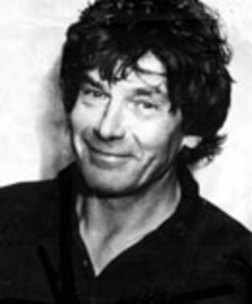And now here was I, sitting on six completed, complex scores and raring to go, and Tony with none yet, and I had fixed us the single gig we had, and there was room in a 30-minute broadcast for just four tunes: what was I to do? I don't know how I had the neck, but I insisted I contribute three charts to Tony's one. Even then I had choices to make. In Three, Lainey's Tune and The Generals of Islmabad got aired, while my scores of Darlington, One for Gordon and Stay Awhile were put on a shelf, and sit there to this day, unperformed. (But a different version of Darlington is on John Dankworth's Lifeline album, and go here for a small-group One for Gordon, and here for Stay Awhile.)
The lineup emerged out of our American musings and contained all our favourite players. Tony would have been the one to insist on a percussionist, I on a tuba. We'd both have gone for a french horn, Gil Evans fans that we were. We fixed the routines so that everyone had one solo each (except me, but I was in composer mode and didn't want one: and Stan Sulzman got two for some reason).
Uniquely in my early jazz recordings I play bass guitar (on one tune only, In Three: this all changed later with El Plantano in 1978). It's odd how I compartmentalised myself in those days. A pretty decent singer, I never sang in a jazz context (I do today). A good pianist, I never let myself near a keyboard (until coaxed by Dankworth and Laine in 1981). A so-called 'international' bass guitarist (Henry Lowther says in the sleeve-note to his 1970 Child Song album, 'Daryl is doing things on the bass guitar no-one else is doing' – pre-figuring Pastorius, if I'm going to be arrogant) I banned the bass guitar from my own jazz for years (but played it on my pop songs, sessions, other people's jazz, occasionally classical...)
As to the music, In Three (which I've always thought of as Sibelian in its gradual exposure of the full melody) was written originally for The National Youth Jazz Orchestra (this is a new and better arrangement). Soloists are Stan Sulzman, Chris Pyne and Dave Horler. Lainey's Tune appears first on my 1973 Quartet date. Here the first solo is by Ray Warleigh, the second by Don Rendell. Note how Don gives a totally different ambience to his solo here from the one on the quartet version; and note how at the climax of my orchestration I include an affectionate quote from Alan Branscombe's electric piano solo on the earlier recording . When the Bough Breaks is a typically tangential and unexpected composition by Tony, a waltz featuring Henry Lowther and Stan Sulzman. Note the almost Hindemithian (but better) unaccompanied brass chorus toward the end. The title of The Generals of Islamabad was gleaned at random from the front page of The Guardian on the day I wrote the tune. I had no idea in those days of the political ramifications of Sub-Continental politics, and the tune is an up-beat fusion number on which, unaccountably, I choose to play double bass, not bass guitar. Soloists are Tony Hymas, Frank Ricotti and Kenny Wheeler. |
